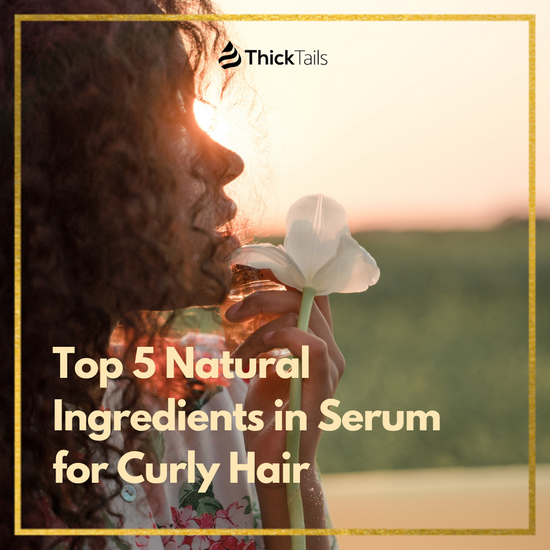As women, we are constantly inundated with messages about what we should and shouldn't put into our bodies. With so much conflicting information out there, it's hard to know what to believe. When it comes to our health, it's important to be as informed as possible so that we can make the best choices for ourselves.
There are a lot of myths floating around about veganism and nutrition, but the reality is that a vegan diet can be extremely healthy and beneficial for many people. If you're struggling with hormonal imbalances or other health issues, you may want to consider trying a vegan diet. But how do you get all the nutrients you need without consuming animal products? The answer lies in vegan hair supplements.
What is veganism and why follow a vegan lifestyle

Veganism is a lifestyle choice in which adherents abstain from consuming any animal products. Adopting a vegan lifestyle means that one avoids all products which contain any animals or animal byproducts, such as meat, dairy, eggs, leather and wool. Additionally, vegans may choose to abstain from buying items that have been tested on animals or are otherwise not cruelty-free. There are various reasons someone might opt for a vegan lifestyle. For some it comes from moral objections to the exploitation of animals for food and other purposes. Others may make the ethical decision to promote their own and others' health benefits by choosing whole plant-based foods over those derived from animals. Environmental concerns surrounding land usage and greenhouse gas emissions associated with animal agriculture also often drive people towards a vegan lifestyle in order to reduce their carbon footprint. Finally, vegans may also wish to avoid any risk posed by antibiotic resistance due to overuse of antibiotics in livestock farming systems.
Nutrients that are important for healthy hair growth
Healthy hair growth requires a variety of vitamins and minerals in order to thrive, including omega-3 fatty acids, zinc, iron, Vitamin A, Vitamin C, Vitamin E, and B vitamins such as biotin. Vegans can ensure they’re receiving these nutrients through dietary sources alone by including plant-based proteins like beans and lentils; walnuts and flaxseeds for omega-3s; leafy greens for iron; spinach and broccoli for Vitamin A; oranges for Vitamin C; unsweetened green tea for Vitamin E; and fortified cereals or nutritional yeast to get their fill of B vitamins. If necessary, vegans can also supplement their diets with capsules that deliver the nutrients required for optimal hair health.
Popular vegan hair supplements
Plant-basedhair vitamins are quickly becoming a go-to solution for people looking to grow healthier, shinier hair. For instance, biotin is an incredibly popular vegetarian hair supplement that works by aiding in the production of fatty acids, and is known to improve the strength and thickness of the hair. Deficiency of certain vitamins, minerals, and proteins can lead to weakened hair growth, and vegan supplements like silica and zinc can play a key role in preventing these deficiencies from occurring. Silica helps your body absorb calcium more efficiently, aiding in healthy nail, skin and cell turnover for stronger strands. Zinc also encourages healthy collagen production which promotes faster hair growth. With all of these natural compounds combined into one capsule or tablet, you can easily achieve beautiful results with vegan supplements!
How to choose the right vegan hair supplement for your individual needs
Finding the right vegan hair supplement for your individual needs can seem like a daunting task. Fortunately, there are a few key tips to keep in mind to help you make an informed decision. Start your research by reading labels carefully to identify any ingredients that may not be vegan friendly or trigger allergic reactions. Next, seek out trusted customer reviews, as experienced feedback can be highly valuable when comparing between products and brands. Finally, consider the nutritional value of potential supplements and how they fit into your overall diet goals. Following these steps should help you in finding a vegan hair supplement that addresses your needs and supports your hair health in the most effective way possible.
Recipes for vegan hair masks and treatments that you can make at home

Making your own vegan hair masks and treatments within the comfort of your own home can be a simple and effective way to give your hair some extra nourishment. For a simple, protein-rich mask that only requires two ingredients, blend together one ripe banana and one tablespoon of almond or coconut oil. To add an antibacterial boost, add two drops of tea tree oil to the mask before applying it to shampooed moistened hair. Another easy recipe calls for 2 tablespoons of almond butter mixed with 1 tablespoon of castor oil and 1 teaspoon of lemon juice. After mixing thoroughly, apply to mid-lengths and ends, cover with a shower cap, leave on for 15-20 minutes, then rinse off with lukewarm water. For extra shine and hydration you can use a mix of hemp seed oil and shea butter as a deep conditioner; simply warm them slightly in their individual jars in hot water before combining them together. With these simple vegan recipes your hair will soon benefit from stronger, softer locks!
Veganism is a lifestyle that abstains from using any animal products. Someone might choose to follow a vegan lifestyle for ethical, environmental, or health reasons. To ensure healthy hair growth, vegans need to consume enough of certain nutrients like protein, omega-3 fatty acids, iron, and zinc. These nutrients can be obtained through diet and supplements. Some popular vegan hair supplements include biotin, MSM, and horsetail extract. When choosing a supplement, it's important to consider your individual needs and read the label carefully. There are also many recipes for vegan hair masks and treatments that you can make at home using simple ingredients like olive oil, avocado, banana, and apple cider vinegar.











